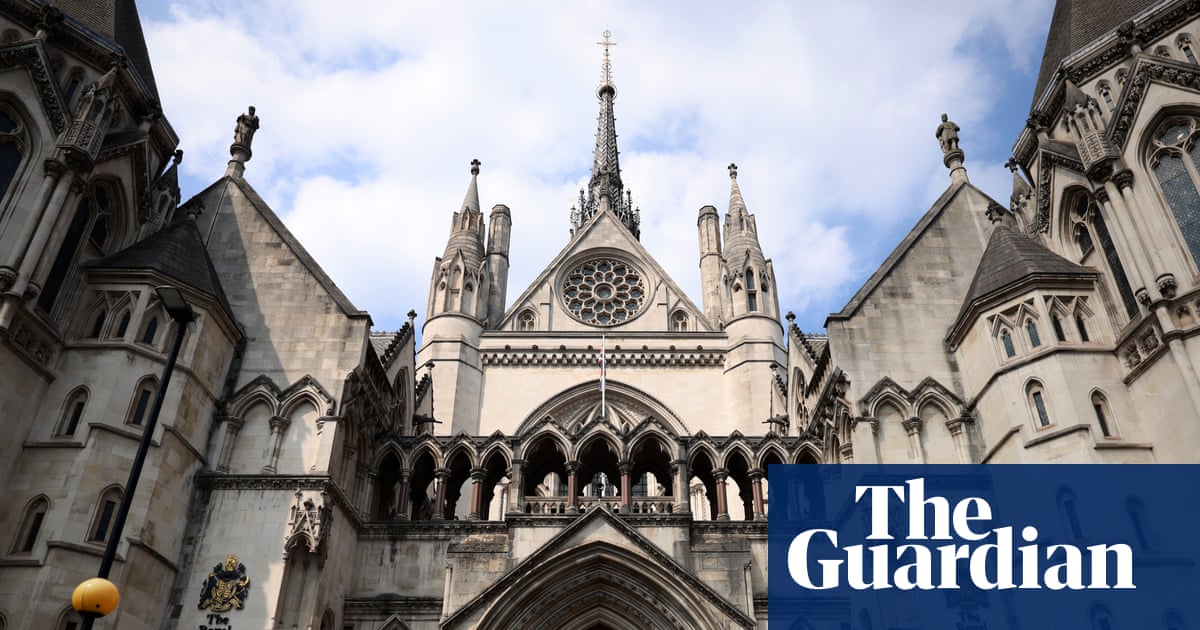Yvette Cooper could face legal action over the decision to keep an asylum seeker with schizophrenia in prison.
The high court has ordered the home secretary to release the 25-year-old man by 8 September, and the Home Office may have to pay him damages for breaching his human rights.
The judgment, published this week within hours of Nigel Farage unveiling plans for “mass deportations”, demonstrates the legal obstacles a Reform UK administration might face.
The claimant, from Nigeria, whose name was anonymised in the judgment, was jailed for offences in Scotland in October 2024 and was due to be released in January this year.
However, weeks before he was to be released, the man signed a letter withdrawing his asylum claim. The home secretary then detained him in prison under immigration powers to remove him from the country and prevent him absconding in the meantime.
After lawyers told the home secretary that the man did not understand what he was signing and did not want to withdraw his asylum application, Cooper reinstated his asylum claim.
However, the high court heard, she “continued to detain” him, believing he could be removed from the country within weeks.
In the judgment, the deputy high court judge Alan Bates said he was not satisfied it was reasonable for the home secretary to believe the claimant’s case would be dealt with quickly, given “the combination of the reinstated asylum claim and the accumulating indicators of the claimant’s psychosis”.
In May a tribunal granted immigration bail to the claimant, which should have led to his release. Nonetheless, he remained in prison, more than 15 weeks on, because he had not been provided with “a suitable accommodation address in the community”, Judge Bates said.
Concerning the claimant’s detention since he was granted bail, Bates said it was “arguable” that the home secretary “has not always acted with the appropriate diligence and … that this has led to the claimant remaining in detention for a longer time than necessary”.
Bates, granting an interim order for the claimant’s release and permission to apply for a judicial review, which would determine whether his detention was unlawful, said it was “arguable that [Cooper’s] detention of the claimant … has, at least at times, been incompatible” with his right to liberty under article 5 of the Human Rights Act.
Bates warned that a case for damages for unlawful detention could follow against the Home Office, adding: “Damages would not be an adequate remedy … especially so in the circumstances of this case, given that there is some evidence that detention may be worsening … [his] mental health.”
Between July 2021 and April 2024 the claimant, believed to have entered the UK in a lorry at Dover, was under the care of mental health services and twice detained under the Mental Health Act.
He was jailed in October 2024 for 18 months after travelling from asylum accommodation in Wolverhampton to Pitlochry, Scotland, where he threatened a shopkeeper with a broken bottle in an argument. His previous convictions included possessing a knife and assaulting an emergency worker.
After his sentence in Scotland, he was detained at Brook House immigration removal centre in West Sussex, where concerns were raised that he might be a victim of torture and that detention would worsen his mental health.
But in April of this year he was moved to HMP Lewes in East Sussex, apparently because his “erratic” behaviour could not be “adequately managed” at an immigration removal centre.
Bates, in his judgment, said “in fairness” to the home secretary, the making of “appropriate arrangements” for the claimant’s release – considering his mental health, licence conditions and the immigration regime – were “not without practical complexities”.
He added: “I bear in mind that [Cooper] accepts that the claimant must be released. What is preventing his release is the non-availability to him of suitable accommodation, which has been approved as suitable by his [social worker].”
A further hearing concerning potential proceedings for damages for unlawful detention is expected to take place in October. The Home Office has been approached for comment.
